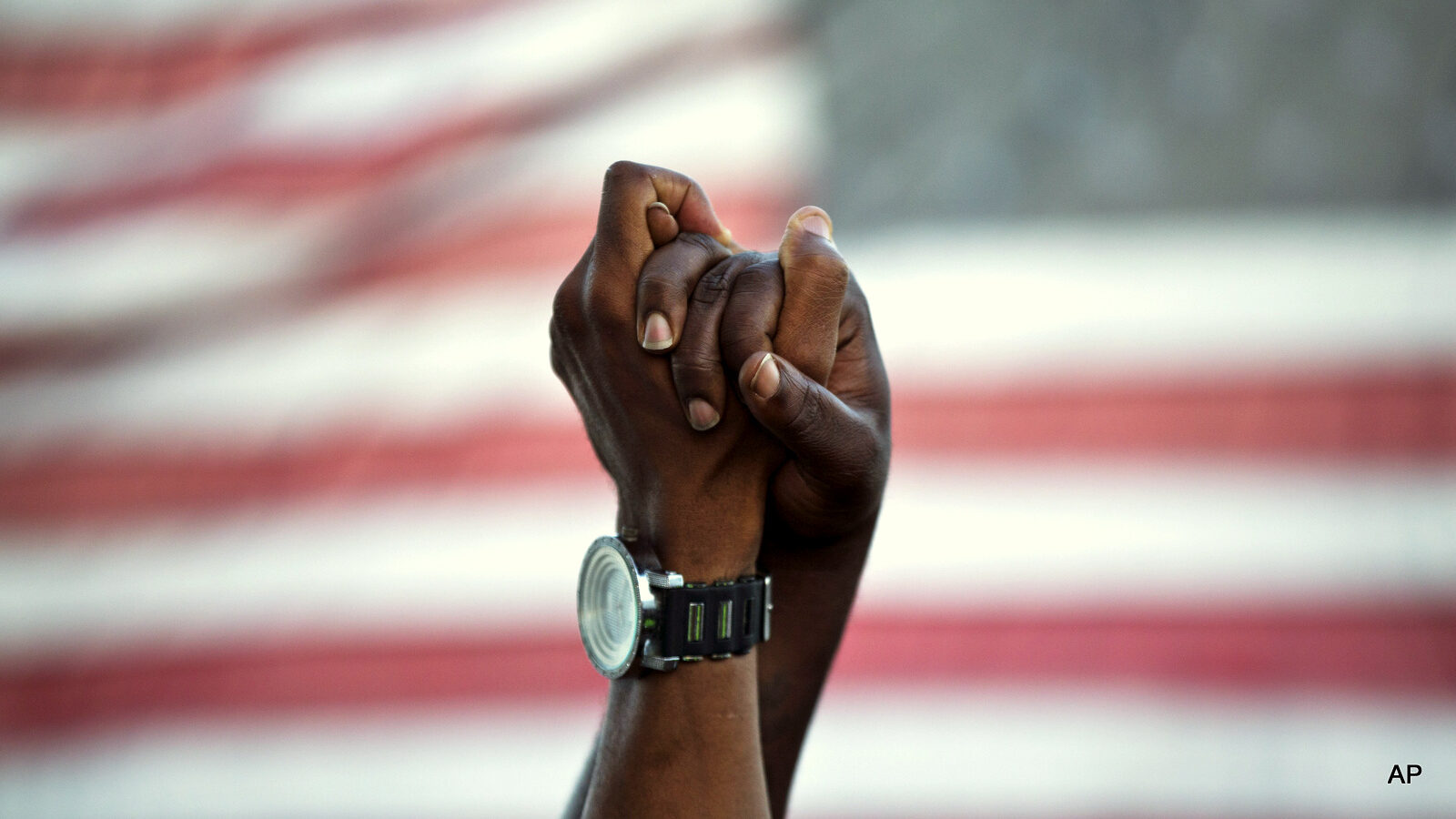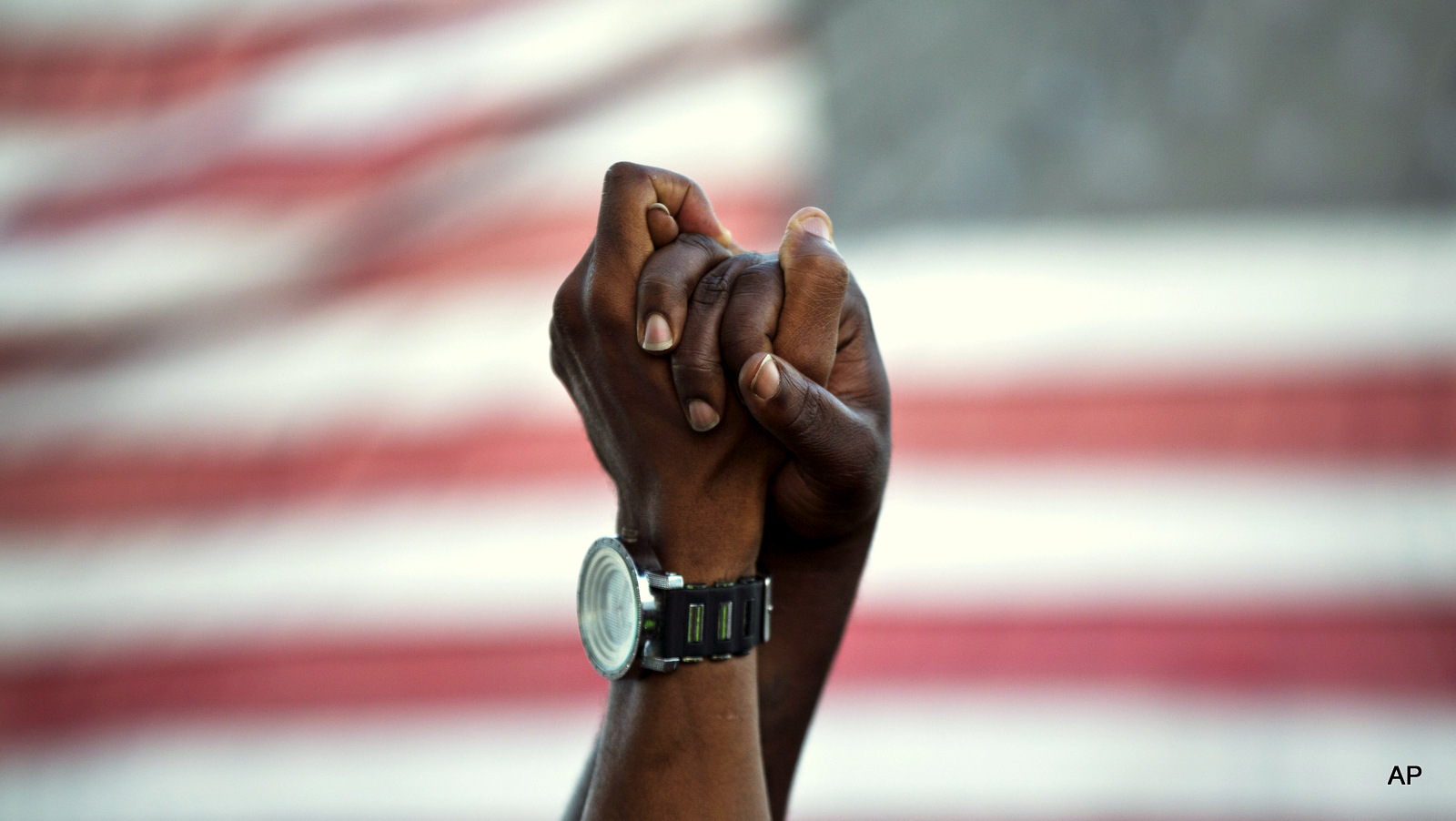
A note from the author:
Many things have transpired since I last penned a piece for MintPress News, but I am reminded of an old saying: “The more things change, the more they stay the same.” I’ve felt the tug and the pull of picking up the pen, so to speak, but the inertia of health and honest-to-goodness heartache concerning the subject, dictated otherwise.
Nevertheless, I, in light of recent events, have reached a saturation point that no matter how afflicted the body, the spirit cries out to speak. We are at a place in American history where the stoniest of hearts and the hardest of heads among the recalcitrant have to concede that racism is a clear and present danger to America’s black sons and daughters.
Fill-in-the-blank racism
I’m tired of writing piece after piece and essay after essay about the evils of racism and the pain of discrimination. They don’t seem like individual pieces anymore, but templates where all you have to do is fill in the blanks.
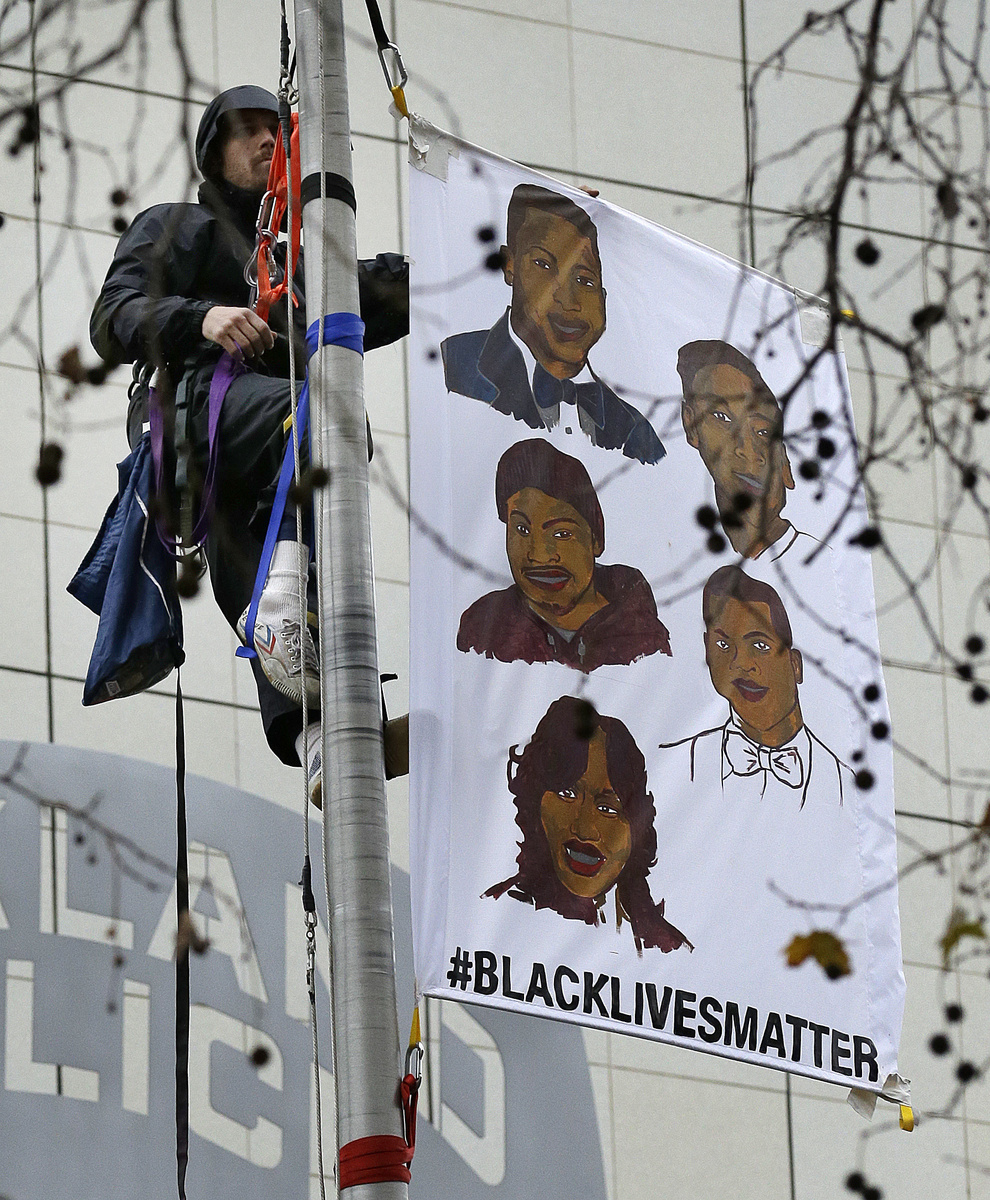
From July 23, 2013:
“No, the Zimmerman verdict says, their most mundane activities should always be viewed with skepticism. In other words, Black children are never just walking home, just going to get groceries or just hanging out with friends. A more diabolical reason has to be ascribed to those actions because, remember, Black boys, Black young men and Black children are always a threat [insert McKinney, Texas; Tamir Rice] — and threats need to be neutralized and eliminated.”
From Aug. 6, 2013:
“It is an irrefutable truth that in a historically racist social system, laws will continuously reflect, protect and sustain values that are consistent with racism [insert the U.S. Justice Department’s Ferguson, Missouri, report].”
From Aug. 29, 2014:
“2008: Jim Adkisson — kills two; wounds seven — apprehended alive
2008: Nicholas Troy Sheley — kills eight — apprehended alive
2011: Scott Evans Dekraai — kills eight; wounds one — apprehended alive
2011: Jared Lee Loughner — kills six; wounds 13 — apprehended alive
2012: James Holmes — kills 12; wounds 62 — apprehended alive.
[insert 2015: Dylann Roof – kills 9 – apprehended alive.]
These individuals all happen to be white and very much alive. This writer would love to chalk it all up to coincidence that an alarming number of unarmed blacks — who also hadn’t murdered anyone — are killed by law enforcement across this country, while those who not only murder average citizens but kill cops as well, are still breathing, eating and sleeping. In order to do that, though, a whole lot of history would have to be ignored.”
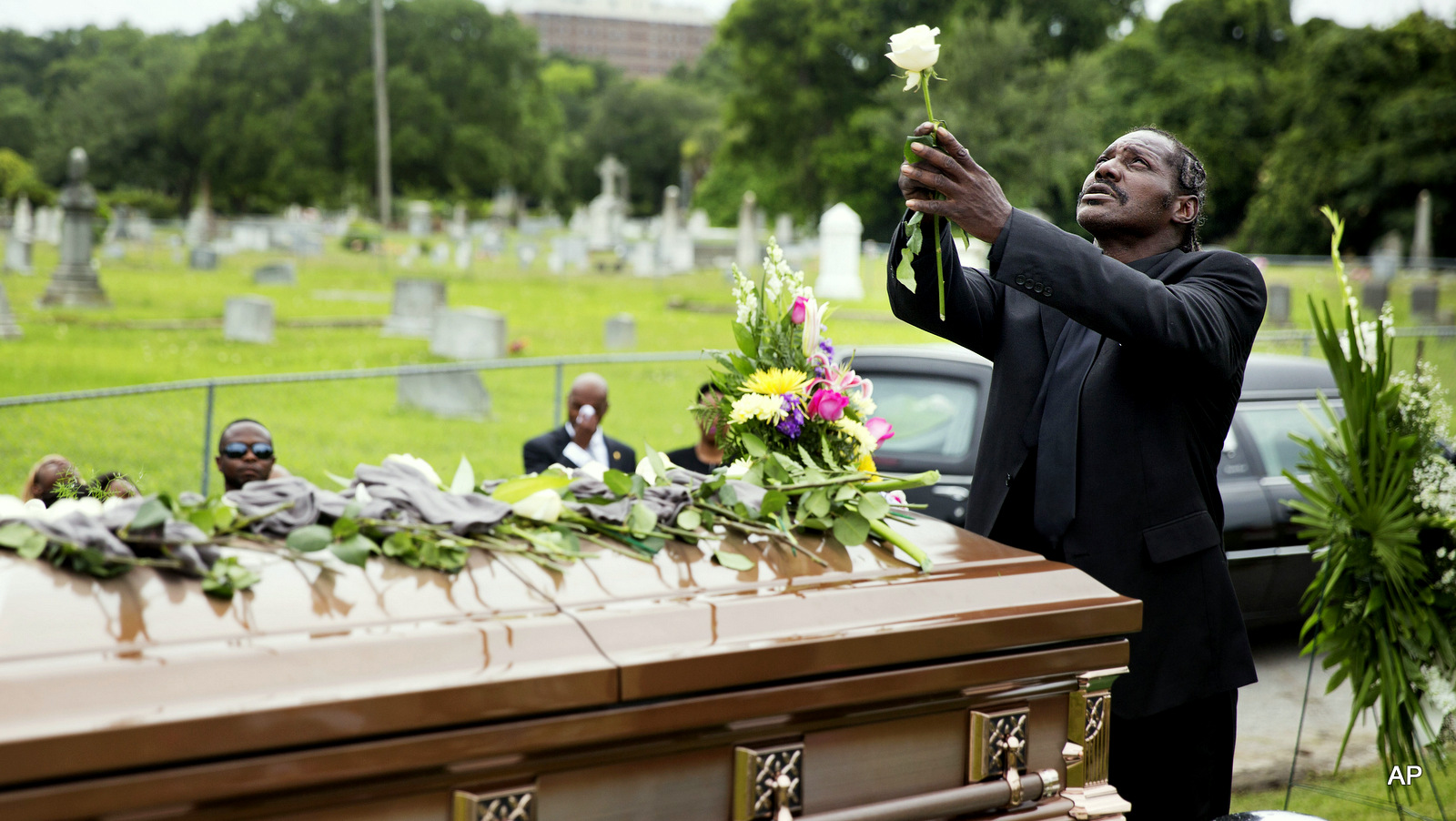
The painful reality is that this writer could have multiplied these examples by ten, in terms of what I’ve personally written on the subject. And yet it persists because this country and society have never had a true “come to Jesus” moment when it comes to racism and white supremacy. Sure, we continually call for a “national conversation on race,” but that’s like saying that someone can talk herself out of the cancer ravaging her body. Racism and white supremacy isn’t a fly that one can simply “shoo” away. Their roots are as deep as the history of this nation, and yet when we are confronted with the magnitude of the disease, we never let justice’s scalpel go deep enough.
Nothing to see here, people, it’s just a 12-year-old boy gunned down by police. Keep moving along, citizens, it’s just another unarmed black man killed by a cop. Just stroll on by, folks, racism had absolutely nothing to do with the killing of those nine black people attending a Bible study, even though they were killed by a self-proclaimed white supremacist.
The hamster may never tire of the wheel, but the human being aware of her or his own value, and the value of others, must break the cycle. And a society comprised of such individuals must call a spade a spade and be perfectly honest about how those deemed spades are treated in that society.
Livin’ in the land of denial
Watching various people and groups twist themselves into rhetorical pretzels as they try to find some motivation or rationale, other than racism, as to why unarmed blacks are brutalized and killed by law enforcement has been a cringe-worthy experience. This same dynamic is on full display in the recent church shooting in Charleston, South Carolina. It doesn’t matter that the killer himself has stated that he is a racist by word, deed and apparel – another reason for his violent actions, positively, must be found.
Watch Fox News spin the Charleston shooting as a «war on Christianity:
In this same vein, we see the white spree killer treated to the “he must have mental problems” canard. It could or could not be true, but, nevertheless, these killers are given the option of their crime being put in that context. Let’s contrast that with how murder is spoken of in regard to the black community. Here, the message is: That’s just the way they are. It’s absent of any context whatsoever, as if centuries of poverty, racism, discrimination, alienation and abusive behavior from those who have vowed to serve and protect, couldn’t produce some deep and abiding psychological issues as well.
Racism and white supremacy decorate the panorama of American history, and yet we are treated with obfuscation and denial at every turn. It seems we live in an American society that is hellbent on euthanizing black hope and injecting our despair and frustration with adrenaline. We abide in a country that counts our lives as cheap, and through brutal conditioning has taught too many us to feel the same.
The humiliation and pain of the racist assault of racial profiling and police brutality experienced by blacks is negligible or warranted in the minds of too many American citizens. To admit otherwise is to concede that there’s a problem, and to concede there’s a problem automatically begs the question, “So, what are you doing about it?” And let’s face it, folks, that commitment in actually addressing racism, that level of personal reflection, has not been a hallmark of this country.
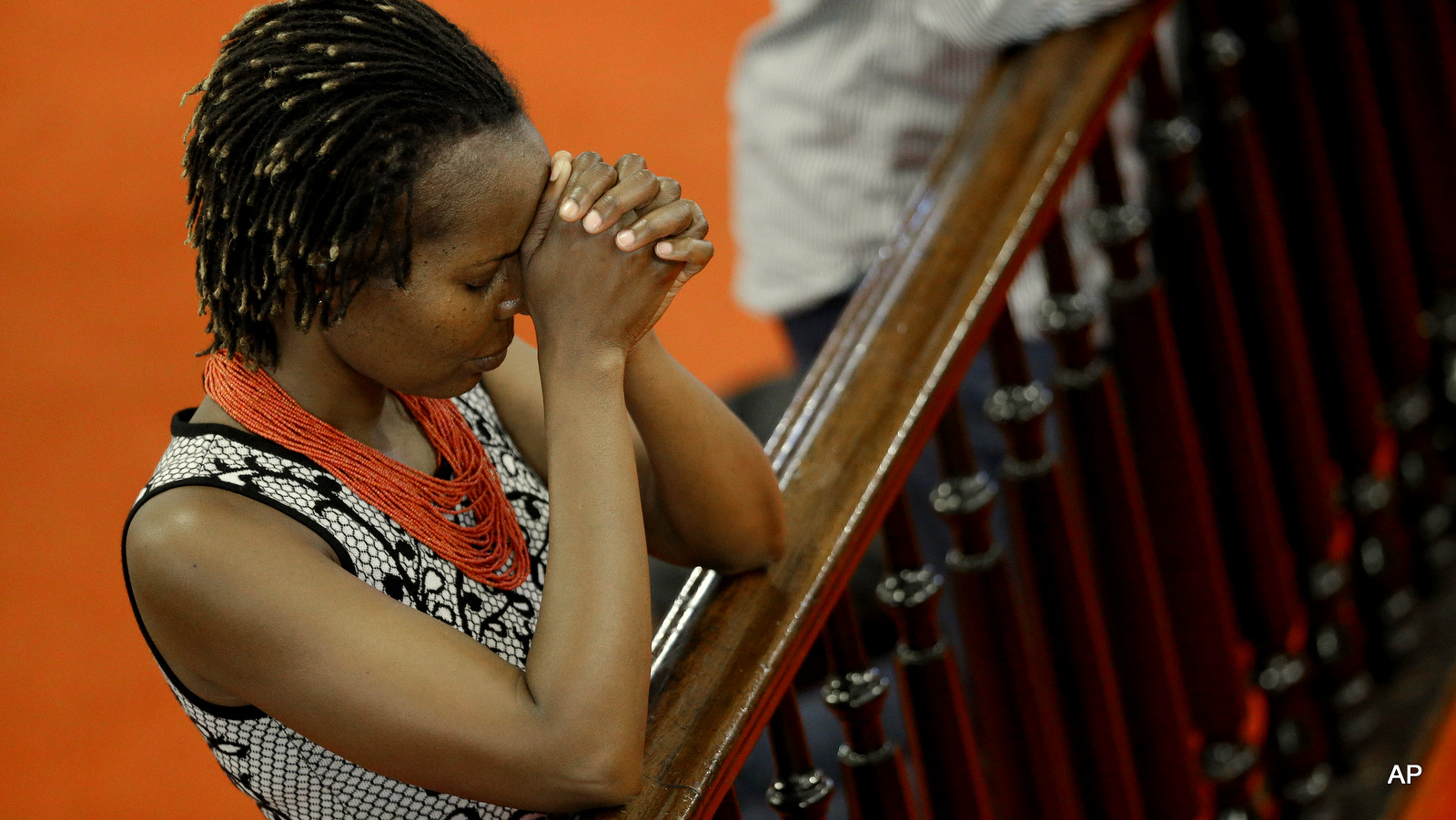
The Christian response
I endeavor to live a life of faith, and that faith is decidedly Christian. The reports coming out of Charleston of the victims’ families forgiving Dylann Roof are powerful, but not foreign to the faith – this does not, however, make their declarations any less compelling.
There are many who would call this a Christian nation — including those who loathe making the connection between the epidemic of police brutality against blacks and the latest massacre, to racism. They would further state that forgiveness is at the heart of the Christian faith, and they would be only half-right. The other side of the coin is the correct response to that forgiveness: repentance. To repent, simply put, means to change. More narrowly, it means making a 180 degree turn from what you had been doing, pull an about-face. Anything less is cheap grace.
«A penitent Christian nation does not try to justify the demoralization of black children by police officers.»
Dietrich Bonhoeffer, a Christian minister and Holocaust casualty, said, “Cheap grace is the grace we bestow on ourselves. Cheap grace is the preaching of forgiveness without requiring repentance … .” Overtures of forgiveness toward racist individuals and a racist society have been made by blacks since slavery without this nation making any significant attempts at repentance. Cheap grace for a “Christian nation” is to pay lip-service to the notion of justice, but excuse away the blatant injustice they see. Cheap grace for a “Christian nation” is to vehemently proclaim that we’re all Americans, but when our darker-hued Americans, including children, are being assaulted and killed at the hands of law enforcement, it’s “those people” and precious little is done.
To truly repent means a price must be paid; it means there’s a cost to change. This “Christian nation” has spent many years avoiding paying that price. Every law, decision or act made in this country aimed at redressing the injustices against blacks, has either been ignored, faced constant threat of repeal, was overturned, or otherwise saw its impact severely hampered or limited. This is a resounding national and societal “NO” to repentance; it is a refusal to make the about-face that the Christian gospel requires.
No, forgiveness is not the refusal to seek justice – although many people think just that. A costly grace demands the confrontation of our transgressions because in order to forgive, it must be clear what’s being forgiven. No matter the discomfort, the sin has to be confessed to be forgiven. But America has a hard time confessing our sins racism and discrimination, making it impossible to repent, to change.
A penitent Christian nation does not try to justify the demoralization of black children by police officers. A genuinely contrite country does not turn a blind eye to patterns of discrimination when it comes to racial profiling, police brutality and the killing of unarmed black men. Absent of the component of repentance, injustice is reasonable and villainy is protected.
Getting back to Charleston, those families touched by evil when they came face to face with the perpetrator of that horror, chose love, mercy and forgiveness. It’s time we stop paying temporary and hollow homage to such acts. If not, I’ll see you at the next tragedy or the “next” seminal moment in American race relations. It’s time that this nation, this society, repents in regard to the racism they have perpetrated, abetted and willfully ignored. It is only when forgiveness leads to a transformative experience, do we know its real power. It’s been a long time comin’ but change, repentance, has got to come.


